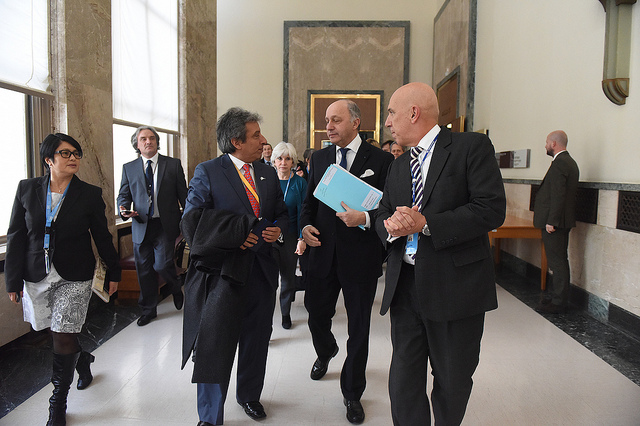
Theophilus Ikpome
The climate change agreement to be adopted at COP21 in December should include a menu of policy options that can facilitate and incentivize increased ambition over time. This is the key recommendation in the first policy brief issued under the Centre for International Governance Innovation’s (CIGI) Fixing Climate Governance series.
In Policy Options Could Increase Ambition in the 2015 Climate Agreement, Henrik Jepsen recommends a party-driven process for defining policy options that parties can implement on a voluntary basis. He says parties “should still negotiate economy-wide targets, but supplement these negotiations with parallel discussions where the difficult issue of targets is ‘unbundled’ in favour of a number of partial issues.”
Jepsen says that “technical experts and political decision makers are increasingly aware of the high potential in energy efficiency, renewable energy and other thematic areas”, and that policy options can bring co-benefits, such as job creation, energy security, energy access and improved health. Specific options could include renewable energy targets or energy efficiency standards and labeling.
The ambition mechanism, which could be non-binding and facilitative, could make cooperation under the UNFCCC both “broader and deeper,” says Jepsen. This approach, where parties would choose from a negotiated menu according to their own preferences, would build on existing agreements, decisions and institutions.
Policy Options Could Increase Ambition in the 2015 Climate Agreement is published as part of the Fixing Climate Governance project. Led by CIGI Senior Fellow John Odell and Distinguished Fellow David Runnalls, the project will release a set of policy briefs offering original concrete recommendations for making the UNFCCC more effective.











